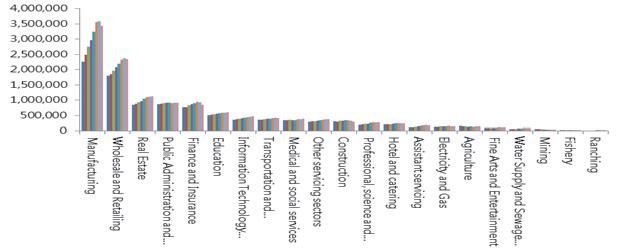
2 minute read
The Fisheries Agency neglects the reality of resource depletion It continues to use taxpayers money to subsidize the distant water fishing industry which makes it an accomplice in the destruction oftuna resources
1.
Taiwan is paying for the distant water fishing industry with resource depletion
Taiwan is the largest distant water fishing operator in the Western and Central Pacific, which provides 60% 1 of the world’ s tuna with 1,953 vessels currently registered under Taiwan’ s flag 2 , accounting for 30% oftotal distant water fishing vessels in the region. But this region, a major Taiwanese fishing ground, is now experiencing a serious tuna crisis . 3 According to the redlist of endangered species published by IUCN 4 , the most important tuna species in the Western and Central Pacific such as the big-eye tuna, yellow-fin tuna and albacore are now listed as vulnerable and near threatened Across the world, 5 out of 8 tuna species, such as the Southern Bluefin tuna and Atlantic Bluefin tuna, are on the redlist. Despite this precarious situation, the large fleet of Taiwanese vessels still employ high-tech and industrial methods to fish in the Western and Central Pacific, where total catches (of all nationalities)reached a peak of 2.46 million tons in 2009. Why are the Taiwanese vessels lead ing the plunder of the Pacific tuna to oblivion and how exactly can they afford to do this despite declining resources?
As tuna becomes more scarce, the operating costs of the fishing fleets increase. For example vessel operators have to spend more on gasoline, which accounts for 40% of total costs, in order to remain in operation in the Western and Central Pacific regions.
Distant Water tuna resource depletion and rising crude oil prices are recognized by both the industry and the government
The Fisheries Agency (Survey of the distant water fishing industry operators 2009)
5 :
The international crude oil price has risen rapidly in the last 2 years, which has led to high operating costs for the vessels. Consequently, the (distant water) fishing industry had recorded net losses in recent years. In addition to that, pressure from international organizations calling for the protection of fish resources has led to rising costs in fishing operations.
The Fisheries Agency (Management and restructuring of the distant water fishing
industry) 6 : Due to rising international crude oil prices and the difficulty in raising market fish prices, Taiwan’ water fishing industry is facing a difficult operational environment with high costs. s distant
Council ofAgriculture, the Executive Yuan (Agricultural policy and
situations) 7 : Gasoline fortuna vessels ac counts forup to 40.7% ofthe total costs. Forthe squid fishing vessels, gasoline is 53% or more of the total costs. Gasoline is an important expense for the overall costs. However, in the context of international free trade, the market price for fish has had little space to grow. With shrinking resources and large catch capacities under high-cost operations, salaries of front line fishermen have experienced limited growth.
People involved in the distant water fishing
industry 8 : In the context of high gasoline price and depleted resources, industry. It’ s time to reform. the distant water fishing industry is an aging


